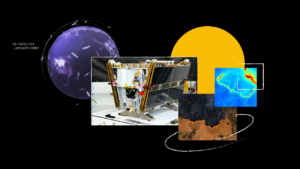DeepMind Plans to Utilize AI Models for Physical Robots

Google’s DeepMind: Harnessing AI for Robotics
Introduction to DeepMind’s AI Innovations
DeepMind, a leading artificial intelligence firm under Google’s umbrella, has recently announced exciting developments in the field of robotics. The company is leveraging its advanced AI models to enhance the capabilities of physical robots. This move aims to bridge the gap between virtual AI systems and real-world applications, making robots smarter and more efficient.
The Role of AI in Robotics
AI technology is revolutionizing how robots operate, enabling them to analyze data, learn from their environments, and make decisions independently. Here are some key roles AI plays in robotics:
- Autonomous Decision-Making: Robots equipped with AI can assess their surroundings and perform tasks without human intervention.
- Machine Learning: These robots utilize machine learning algorithms to adapt and improve their performance over time, based on new experiences.
- Natural Language Processing: AI allows robots to understand and respond to human commands, enhancing their ability to interact with people.
- Vision and Perception: Advanced AI algorithms enable robots to recognize objects, navigate spaces, and respond to changes in their environment, making them highly functional in diverse settings.
Applications of AI-Powered Robotics
AI-driven robotics can be applied in various fields that benefit from automation and enhanced efficiency. Some prominent applications include:
1. Healthcare
- Surgical Robots: AI improves precision in surgeries, leading to better outcomes for patients.
- Caring Robots: These robots can assist in elderly care, helping with daily tasks and providing companionship.
2. Manufacturing
- Assembly Line Automation: Robots using AI can streamline production processes, reducing errors and increasing productivity.
- Quality Control: AI can help identify defects in products more rapidly and accurately than human inspectors.
3. Agriculture
- Precision Farming: Robots powered by AI can monitor crop health, optimize planting schedules, and analyze soil conditions for better yields.
- Harvesting: Automated drones and robots can efficiently harvest crops, minimizing waste and boosting efficiency.
DeepMind’s Vision for the Future
DeepMind’s strategy focuses on integrating its AI models more deeply into real-world robotics. The company’s research emphasizes creating robots that are not only functional but also capable of learning and adapting to complex environments. This includes:
- Reinforcement Learning: DeepMind is pioneering methods where robots learn through trial and error, improving their performance as they face various challenges.
- Collaborative Robots (Cobots): These robots are designed to work alongside humans, enhancing collaboration in workplaces without replacing human jobs.
Challenges and Considerations
While the promise of AI in robotics is immense, several challenges remain. These include:
- Safety Concerns: Ensuring that robots operate safely around humans and do not pose risks is a top priority. Rigorous testing and safety protocols are essential.
- Ethical Implications: The integration of AI in robotics raises ethical questions about job displacement and the responsibilities of AI systems.
- Technical Limitations: Current AI technology faces limitations in understanding complex, unstructured environments fully. Ongoing research is crucial to overcome these barriers.
The Future Landscape of Robotics
As DeepMind continues to innovate in applying AI to robotics, the future holds vast potential for enhancing industries and improving everyday life. From intelligent household assistants to smarter machines in factories, the possibilities are expansive. Continuous advancements in AI technology promise not only substantial growth in robotic capabilities but also significant transformations in how humans interact with machines in various aspects of life.
By investing in AI for robotics, DeepMind aims to shape a future where intelligent systems play a central role in improving overall efficiency, safety, and convenience across multiple sectors. The journey is just beginning, and the implications of these developments are profound.






